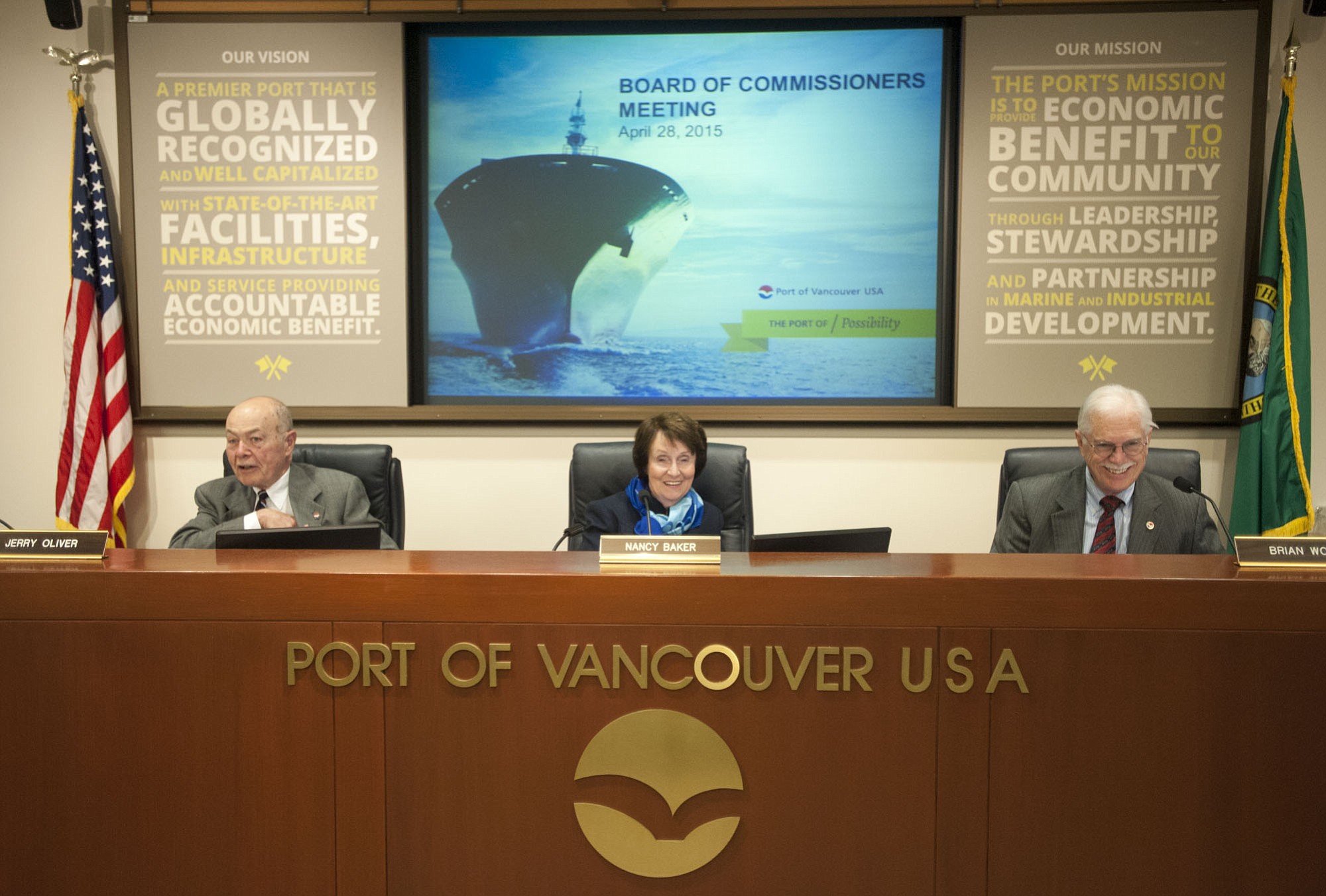Proponents of building the nation’s largest rail-to-marine oil transfer terminal at the Port of Vancouver will be allowed to intervene in a lawsuit that accuses the port of unlawfully cloaking parts of the lease.
Friday’s ruling by Superior Court Judge Robert Lewis did not decide the merits of the suit filed by a local environmental group and one of its members. Instead, Lewis granted a request by attorneys for Tesoro Corp., a petroleum refiner, and Savage Cos., a transportation company, to step in and make their own arguments against releasing an unredacted version of the contract.
Lewis also spoke to attorneys in the case about setting a schedule for filing legal briefs and making oral arguments in the case. Such actions are expected to occur over the next several weeks.
“Looks like you’ve got a pretty good head start, given the 5 or 6 inches (of documents) that I’ve already received,” Lewis said.
At issue is a lawsuit filed on May 27 by the Clark County Natural Resources Council and John Karpinski, a member of the group. The complaint contends that certain blacked-out pieces of information in the lease must be revealed under the state’s public records law and that the information falls out of the scope of the state’s trade secrets law.
The hidden information includes the deadline by which the companies must secure construction permits under a state-level review process. If the companies don’t meet the deadline, the port could opt out of the contract. Other concealed information includes oil-handling targets the companies must hit to have a shot at building a second terminal or expanding their operation.
In initial legal filings, Tesoro, Savage and the port argue that state law allows them to hide parts of the lease for various purposes, including protecting their competitive positions in the broader market. The port has said that only 11 pieces of information were redacted from a 429-page lease.
The suit filed by the resources council and Karpinski is part of a larger tangle of litigation directed at the port over its elected commission’s unanimous approval, in 2013, of a lease with Tesoro and Savage to build the oil-handling facility.
The complaint also comes amid a turbulent political situation. Port documents obtained by Columbia Riverkeeper, an opponent of the oil terminal, suggest the deadline for the companies to secure permits may be Aug. 1, 2016 — 36 months after the lease’s effective date.
As a result, opponents of the oil terminal have urged the port to openly discuss any potential changes to the lease, in light of both the estimated summer 2016 deadline for permits and the possibility the companies won’t meet it.
‘Maintaining competitiveness’
In successfully asking Lewis to allow them to intervene in the public records suit, Tesoro and Savage — in partnership as Vancouver Energy — argued they have a significant interest in the confidential business terms that were redacted by the port.
In legal filings ahead of Friday’s hearing, the companies also say they have a right to argue their own interests in the case, in part because those interests are narrower than the port’s.
“As a public agency, the port must balance its duties to its constituents and to the public with the port’s own business interests in maintaining competitiveness in the maritime industry and managing its own trade secret information,” according to Ray Liaw, an attorney with the Van Ness Feldman law firm in Seattle that’s representing the companies. “On the other hand, Vancouver Energy’s interests in disclosure of the redacted trade secret information are purely economic due to its fiscal responsibilities to its members and their shareholders.”
In its initial court filings, the port argues it has committed no violation of the state’s public records law and asks the judge to dismiss the suit “with prejudice,” meaning it cannot be refiled. The port contends state law allows it to redact certain information, including fees, rates and volumes of oil to be moved through the facility.
If such confidential numbers became known, then competing ports could try to undercut the Port of Vancouver and woo away Tesoro and Savage, according to Kelly Walsh, an attorney with the Vancouver office of the Schwabe Williamson & Wyatt law firm, which is representing the port.
The lawsuit filed by the resources council and Karpinski argues otherwise. The port’s lease redactions “constitute a flagrant violation of (Washington’s Public Records Act) and amounts to an abuse of public power,” according to the complaint filed by the plaintiffs’ attorney, Jacqui Brown Miller, of Jessica Jensen Law in Olympia. “This violation has been ongoing for almost one year, and even over (plaintiffs’) objections.”
Reasons ‘legally insufficient’
The complaint contends the port’s reasons for concealing information are “legally insufficient” and that the state Legislature “did not intend for public ports to keep ‘prices’ and ‘oil-volume-triggers’ secret by claiming a ‘trade secret’ exemption under the (Trade Secrets Act) through the (Public Records Act).”
“In light of the overriding public interest in public disclosure that permeates” the state public records law, the complaint argues, “the phrase ‘public agency trade secret’ is an oxymoron.”




